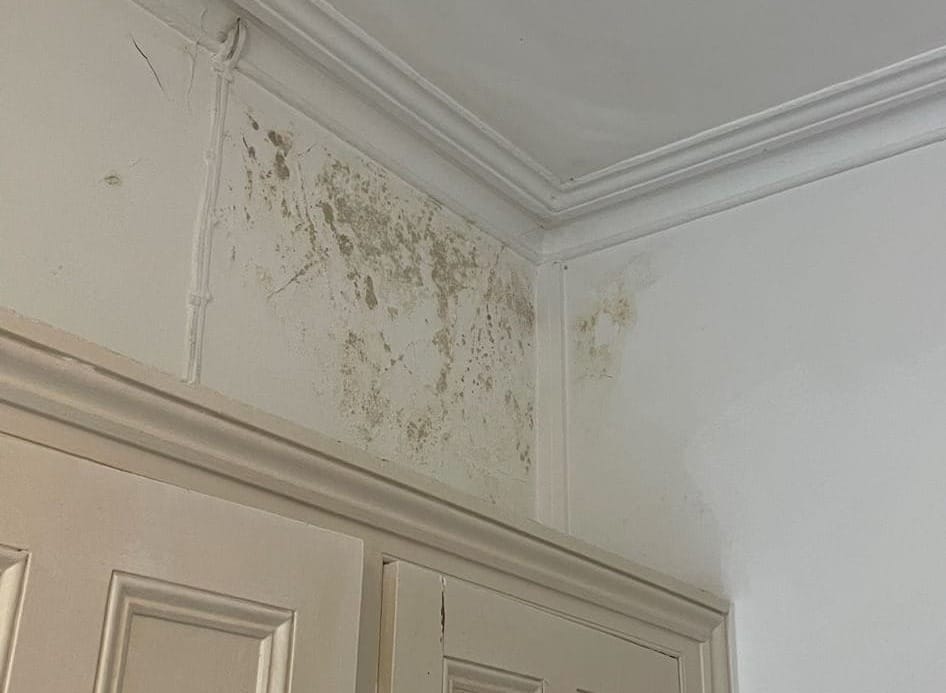By Grace Bourne, Second Year, History and French
Sign our petition in favour of better quality homes for students here.
When I reported the mould that had spread across my bathroom, covering almost the entire skirting board in a dark green hue, the response I received was dismissive: ‘Don’t worry, love, we’re refurbishing the whole building next year, so I’m pretty sure you won’t get asthma.’ This statement was both unhelpful and irrelevant, as I was not going to be living in that accommodation the following year. Moreover, I was left to endure another six months in those conditions, relying solely on the unqualified assurance of someone with no medical expertise that I was unlikely to develop a life-affecting illness.
This is a response that is undoubtedly familiar to many students, who are often expected to ‘put up’ with poor living conditions as part of the university experience. This expectation normalises the idea that students should tolerate discomfort and even hardship as part of their academic journey, often under the guise of fostering resilience or as a trade-off for independence. However, this mindset can overlook the negative impact these conditions may have on students' physical health, mental well-being, and academic performance, perpetuating a cycle where low standards are accepted without question.
Research has shown that mould can become incredibly dangerous and has been specified in the updated Landlords and Tenants Act 1985 as a ‘category one’ hazard. Mould has two significant and harmful impacts: its effects on physical health and the mental health challenges linked to poor living conditions, both of which directly affect academic performance.
Prolonged mould exposure, according to the NHS, can cause ‘sneezing, a runny nose, red eyes and skin rash [...] and asthma attacks.’ The NHS website states, ‘Moulds produce allergens […] irritants and, sometimes, toxic substances.’ For students, who are mostly experiencing living on their own for the first time, it can be hard to get to grips with renting and housing issues such as mould. But there is a high likelihood that it may be affecting your studies.
The death of two-year-old Awaab Ishak from Rochdale in 2020, as a result of prolonged exposure to mould and despite his parents' consistent reporting, proved the extent to which mould can be detrimental and must be treated as such by landlords and local councils. The tragedy of Awaab’s death brought the danger of mould to the media’s attention, but it remains a widespread issue. GOV.UK estimated that in 2019 ‘5,000 cases of asthma and approximately 8,500 lower respiratory infections’ were caused as a direct result of mould exposure. Despite this, mould seems to be regarded as a common problem, something that many are expected to live alongside without complaint.
According to School Psychology International, ‘students with poor health have a higher probability of school failure, grade retention, and drop out’, poor health and ability to study effectively are inextricably linked and yet students are often expected to accept the presence of mould which could be actively affecting your health.
To investigate this issue further, Epigram spoke to Jamie, a student who had noticed a leak in his roof, and promptly reported it to SU lettings, the organisation responsible for his building. Despite saying they would fix the issue in a speedy reply, a week later upon returning from a holiday, the leak had not been fixed and as a result of the subsequent dampness and amount of mould, the room became, in Jamie’s words, ‘uninhabitable.’ Jamie went on to explain that the state of the dampness and mould in his room caused him ‘to have to do all work outside of the house, not feeling like I have somewhere comfortable to go back to at night.’
SU Lettings told Epigram that: 'We appreciate the concerns raised regarding this case and want to provide some additional context. The property in question required scaffolding for a full investigation, which unfortunately led to delays as the original contractors needed to be consulted. This property was inherited in poor condition by Bristol SU lettings, and significant work has been undertaken to improve its standard to the necessary safety and licensing requirements.
'In the meantime, during this case we confirmed that the tenant had an alternative place to stay, was given a rent reduction, and was reimbursed for a damaged item from the leak.
'If any students have concerns about their SU Lettings accommodation, we encourage them to reach out to us so we can provide support and work towards a resolution as quickly as possible.'
Knowing your renting rights: Five ways to take action against mould when your landlord won't
Do I deserve this?: Imposter syndrome at the University of Bristol
GOV.UK outlines the mental health effects of ‘unpleasant living conditions’, highlighting the direct results on a person’s mental health due to the anxieties of living with mould. University life can be exhausting with high workloads and social pressure; without a space to unwind, the strain on mental health is almost inevitable. Stress can have long-term effects on students’ ability to study effectively, when combined with the consistent anxiety as a result of living in an unsafe environment it can become overwhelming and debilitating.
The presence of mould in student accommodations is far more concerning than it may initially appear. It is not merely an unsightly nuisance; mould proves to be a significant health hazard that demands serious attention. Addressing this issue is crucial not only for safeguarding the physical and mental well-being of students but also for ensuring that living environments support, rather than hinder, academic success.
Featured Image: Epigram / Jess Cohen
If you've experienced issues with mould in your student house, please get in touch with Epigram at editor.epigram@gmail.com








